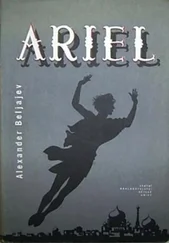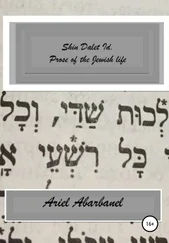Ariel Toaff - Blood Passover
Здесь есть возможность читать онлайн «Ariel Toaff - Blood Passover» весь текст электронной книги совершенно бесплатно (целиком полную версию без сокращений). В некоторых случаях можно слушать аудио, скачать через торрент в формате fb2 и присутствует краткое содержание. Жанр: Религиоведение, на английском языке. Описание произведения, (предисловие) а так же отзывы посетителей доступны на портале библиотеки ЛибКат.
- Название:Blood Passover
- Автор:
- Жанр:
- Год:неизвестен
- ISBN:нет данных
- Рейтинг книги:3 / 5. Голосов: 1
-
Избранное:Добавить в избранное
- Отзывы:
-
Ваша оценка:
- 60
- 1
- 2
- 3
- 4
- 5
Blood Passover: краткое содержание, описание и аннотация
Предлагаем к чтению аннотацию, описание, краткое содержание или предисловие (зависит от того, что написал сам автор книги «Blood Passover»). Если вы не нашли необходимую информацию о книге — напишите в комментариях, мы постараемся отыскать её.
Blood Passover — читать онлайн бесплатно полную книгу (весь текст) целиком
Ниже представлен текст книги, разбитый по страницам. Система сохранения места последней прочитанной страницы, позволяет с удобством читать онлайн бесплатно книгу «Blood Passover», без необходимости каждый раз заново искать на чём Вы остановились. Поставьте закладку, и сможете в любой момент перейти на страницу, на которой закончили чтение.
Интервал:
Закладка:
556
In this regard, see E. Carlebach, The Anti-Christian Element in Early Modern Yiddish Culture , in “Braun Lectures in the History of the Jews in Prussia”, Ramat Gan, Bar-ilan University, X (2003), 2003, p. 17.
557
For the introduction of the term shegez, shekez (“cosa abominevole”) [something abominable] to indicate the Christian children in Judeo-Italian dialect, see, among others, G. Cammeo, Studi dialettali, in “il Vessillo Israelitico” , LVII (1909), p.214; A. Milano, Glossario dei vocaboli e delle espressioni di origine ebraica in uso nel dialetto giudaico-romanesco , Florence, 1927, p. 254; V. Colorni, La parlata degli ebrei mantovani, in Id., Judaica Minora. Saggi sulla storia dell'ebraismo italiano dall'antichità all'età moderna , Milan, 1983, p. 614 (the author attempts to provide a less problematical and embarrassing connotation of the term, proposing that it be translated as “street urchin” or “little rascal, scamp”).
558
Cfr. Giulio Morosini, Derekh Emunah. Via della fede mostrata agli ebrei, Roma, Propaganda Fide, 1683, p. 157.
559
“Iudei patresfamilie in festo Pasce ante cenam, accipiunt modicum de sanguine pueri Cristiani et de illo ponunt in suo ciato pieno vino, et cum eo aspergunt mensam” [“The head of the Jewish family, before the Passover dinner, takes a small quantity of the blood of a Christian child and places it in his glassful of wine, and sprinkles the table with it”] (cfr. Esposito and Quaglioni, Processi, cit., voI. I, p. 192).
560
"Ita est de more, ut patresfamilias ponunt pulverem sanguinis Cristiani in dictis altimis in dicto tempore" [“It is their custom to place the blood of a Christian child in their unleavened bread at that time”] (cfr. ibidem, p. 295).
561
"Ipse non curavit habere sanguinem, quia non erat paterfamilias, quia soli patresfamilias sunt illi qui debent habere (sanguinem) et qui utuntur" [“He was not worried about obtaining any blood, because he was not the head of a family, because only the heads of families had to obtain it (blood) and possess it”] (cfr. ibidem, p.358).
562
Cfr. Divina, Storia del beato Simone da Trento , cit., voI. II, pp. 25-30.
563
On this argument and on the preeminent role of the head of the family in the celebration of the rites of Pesach in the Ashkenazi environment, see, in particular, Sh. Safrai and Z. Safrai, Haggadah of the Sages. The Passover Haggadah , Jerusalem, 1998, p. 106 (in Hebrew).
564
"Sanguis pueri Cristiani est summe necessarius ipsis Iudeis, videlicet patribusfamilias ipsorum Iudeorum.Et si esset aliquis pauper Iudeus, qui non possit haberi de sanguine, excusaretur" [“The blood of a Christian boy is absolutely necessary for these Jews, namely, the heads of Jewish families; anyone who cannot obtain blood, is excused”] (cfr. Esposito and Quaglioni, Processi, cit., voI. I, p.356).
565
Cfr. Divina , Storia del beato Simone da Trento , cit., voI. II, pp. 22-23. La biografia di Shimon Katz, rabbino a Francoforte sul Meno dal 1462 al 1478 , is found in I.J. Yuval, Scholars in Their Time. The Religious Leadership of German Jewry in the Late Middle Ages, Jerusalem, 1984, pp. 135-148 (in Hebrew).
566
Cfr. Divina, Storia del beato Simone da Trento , cit., vol. II, pp. 26-27.
567
"Secundum legem Moisi, precipiebatur ipsis Iudeis quod in die Pasce unusquisque paterfamilias acciperet de sanguine agni masculi sine macula, et de illo sanguine poneret super liminaribus hostiorum domorum suarum; et quod inter ipsos Iudeos est sublata illa consuetudo de accipiendo sanguinem dicti agni masculi sine macula, ut supra dixit, et in eius locum modo utuntur sanguine pueri Cristiani [...] et hoc faciunt et ita dicunt esse necessarium in pessimam commemorationem Iesu, Dei Cristianorum, qui fuit suspensus et qui fuit masculus et non femina, et qui vituperose et turpiter in cruce et in tormentis mortuus est" [“According to the laws of Moses, the Jews were commanded that each head of the family should take the blood of male sheep without fault and pain the lintels of their doorways with it, and that these Jews, having neglected this custom, of taking the blood of a male sheep without fault, as set forth above, instead, they use the blood of Christian boys […] and they do this and say that this is necessary in bad memory of Jesus, the God of the Christians, who was hanged and who was a male and not a female, and who was shamefully and vilely hanged on the cross and died in torment”] (cfr. Esposito and Quaglioni, Processi, cit., voI. I, p. 357).
568
"Illa esio sanguinis Cristiani et quare ita illum comedunt in fugatiis [...] est commemoratio sanguinis quem Dominus dixit ad Moisem ut deberet spargere super liminaria hostiorum domorum Iudeorum, quando ipsi Iudei erant in servitute Pharaonis" (cfr. ibidem, p. 186).
569
"(Iudei) haberent sanguinem [...] in (malam) memoriam Iesu [...] in contemptum et vilipendium Iesu, Dei Cristianorum, dicens quod omni anno faciut memoriam dicte passionis [...]; ipsi Iudei faciunt memoriam diete passionis lesu omni anno, quia ponunt de sanguine pueri Cristiani omni anno in eorum azimis sive fugatiis" [Approximately: “(The Jews) obtain blood [...] in bad memory of Jesus […] in contempt and outrage of Jesus, the God of the Christians, saying that every year, they perform a memorial of the said Passion […]; these Jews perform a memorial of Jesus, because they place the blood of a Christian boy in their unleavened bread every year”] (cfr. ibidem, p. 220).
570
"Quod iam multis et multis annis (et aliter nescit dicere quot anni sint, nisi quod credere suo fuit antequam fides Cristiana esset in tanta potentia), quod Iudei sapientiores in partibus Babiloniae seu locis vicinis, ut dicitur, fecerunt consilium inter se, et ibi deliberatum fuit, quod saluti animarum ipsorum Iudeorum; et quod talis sanguis non poterat prodesse nisi extraheretur de puero Cristiano; et qui puer Cristianus, dum sic extraheretur sanguis, interficeretur ea forma qua fuit interfectus Iesus, quem Cristiani colunt pro Deo; et qui puer Cristianus debeat esse etatis annorum septem vel infra et quod non sit maioris etatis .VII. annis, sed potius sit minoris etatis; dicens quod si esset femina Cristiana non esset bona ad sacrificium suum, videlicet ad extrahendum sanguinem, et talis sanguis mulieris, licet minoris etatis .VII. annis, non esset bonus. Et ratio quia curo Iesus, quem nos Cristiani colimus pro Deo, fuerit crucifixus et in eius contemptum et vilipendium hoc faciant, conveniens putant ipsi Iudei quod ille a quo extrahant sanguinem debet esse masculus et non femina" [Approximately: “He said that many, many years ago (he didn’t know how many, but he believed that it was before the Christian faith became so powerful), the Jewish wise men in parts of Babylon or nearby, it is said, held a council and decided that the blood of Christian boys killed in this manner was good for the souls of the Jews, and that this blood could only be extracted from a Christian boy; and that the Christian boy, when his blood was extracted, had to be killed in the same manner as Jesus, whom the Christians claim is their God, and that the Christian boy must be seven years of age or less, and that he could not be older than seven, but that he could be younger, saying that if it was a woman it was no good for their sacrifice, i.e., to extract the blood, and that the blood of such a woman, even if she was less than seven years of age, was no good. And the reason for this is, that Jesus, whom the Christians claim is their God, was crucified and they do this in contempt and outrage against them, since these Jews think that the person from whom one extracts the blood").
Читать дальшеИнтервал:
Закладка:
Похожие книги на «Blood Passover»
Представляем Вашему вниманию похожие книги на «Blood Passover» списком для выбора. Мы отобрали схожую по названию и смыслу литературу в надежде предоставить читателям больше вариантов отыскать новые, интересные, ещё непрочитанные произведения.
Обсуждение, отзывы о книге «Blood Passover» и просто собственные мнения читателей. Оставьте ваши комментарии, напишите, что Вы думаете о произведении, его смысле или главных героях. Укажите что конкретно понравилось, а что нет, и почему Вы так считаете.












